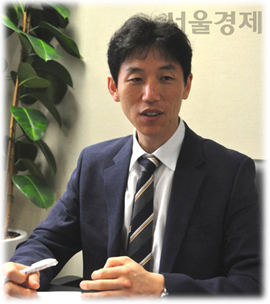| 일 | 월 | 화 | 수 | 목 | 금 | 토 |
|---|---|---|---|---|---|---|
| 1 | 2 | 3 | 4 | 5 | ||
| 6 | 7 | 8 | 9 | 10 | 11 | 12 |
| 13 | 14 | 15 | 16 | 17 | 18 | 19 |
| 20 | 21 | 22 | 23 | 24 | 25 | 26 |
| 27 | 28 | 29 | 30 | 31 |
- Orderliness of Choice
- mechanism of politics
- Power
- Mathematical Model of political science
- Mathematical Model of politics
- new political science
- Canonical Politics
- political organization
- Operation of the 2nd Law
- politics and war
- Task Delegates of the Ruler: Inner Circle
- Samjae Capacities
- Regime Change
- power and organization
- Political Regimes
- political phenomena
- Order of Choice
- Differences in Individual Abilities and Tendencies
- Political power
- Value Systems
- Political Regime
- Samjae Capacity
- Political Change
- Cohesion Force
- the 2nd law
- politics of Inner Circle
- 1st Law of politics
- survival process theory
- the 3rd Law of politics
- politics
- Today
- Total
New Political Science
b. ㉡ Important Aspects of the 3rd Law 본문
㉡ Important Aspects of the 3rd Law
To dispel the misunderstanding about political regime change, one of the things to emphasize is the law [Ch.3.315]. That is, "Regime change occurs only when those who demand regime change have sufficient political capacity, rather than due to demands from a larger group of people."
In countries such as Argentina, Brazil, Bolivia, and Uruguay, economic crises have led to the strengthening of political opposition forces, resulting in rapid political changes and the collapse of existing political regimes. In such cases, it is often assumed that political changes will occur when the majority suffers political damage. However, in reality, this is not always the case.
In the aristocratic social system of the American South in the mid-19th century, ordinary white people who did not own slaves were politically and economically dependent on the large plantation owners and received little benefit, yet the regime persisted. This was due to the fact that many white southerners lived in isolated areas and were illiterate, with very little social capacity. In Russia from Catherine the Great to modern times, widespread peasant uprisings occurred due to crop failures, inflation, and expensive rents with dismal working conditions, yet the political regime remained largely unchanged because the capacity of the peasants was limited. It was not until the 1905 Revolution, which was made possible by an increase in capacity due to changes in Russian society such as the continued growth of opposition forces, the emergence of urban working classes, and the rise of professionals and entrepreneurs, that significant political change occurred. One important reason why there has not been a revolutionary upheaval in North Korea despite the prolonged deterioration of the economy resulting in hunger and poverty among the majority of the population(the oppressed class) is also due to their limited political capacity. Even in China, where tens of millions died from starvation during the Great Leap Forward, there were few peasant uprisings because of the peasants' limited knowledge and wealth. In contrast, when peasant riots occurred in England after the Black Death in the 14th century, the cause was not deteriorating living conditions but the increased capacity of English peasants, who sought political change. Although their living conditions had improved over the past decade, with rising wages and falling prices, they were still angered by the social injustices that were found by their greater capacity.
At the macro-level, even states cannot create a favorable international order for themselves if their capacities are not sufficient. When the Soviet Union was dissolved in 1990, the republics of the Baltic region such as Estonia, Latvia, and Lithuania demanded independence, as did the southern Caucasus republics of Armenia, Georgia, and Azerbaijan. In contrast, the five "Islamic" Soviet republics of Central Asia, including Kazakhstan, Kyrgyzstan, Turkmenistan, Uzbekistan, and Tajikistan, which were relatively underdeveloped, were not able to easily separate and become independent from the Soviet Union. The region was highly dependent on a single crop(cotton) and was impoverished, relying heavily on "massive subsidies that were essential to the economy and the survival of the people," from the central Soviet government.
At a fundamental level, there is no eternal and unchanging stable political system. All aspects of human life are subject to change, and as a result, if the profit equilibrium condition deviates from the rule system[Ch.3.303], the regime change force increases. Especially, the regime change force is proportional to the rate of social change over time[Ch.3.305], so its value increases as time goes by. Therefore, political change will continue forever[Ch.4.C.3.4].
Many political scientists and social scientists have made efforts to understand political change, based on the assumption that political change is a special phenomenon. However, what needs to be understood is not political change, but how a stable political system can be sustained.
'Mechanism of Politics' 카테고리의 다른 글
| b. The Interrelationships of Factors in Regime Change (0) | 2023.12.14 |
|---|---|
| (3) a. Mathematical Model of Political Regime Change (0) | 2023.12.14 |
| b. ㉠ Phenomena Implied by the 3rd Law (0) | 2023.12.14 |
| a. ㉤ Repression Force (0) | 2023.12.14 |
| a. ㉣ Regime Change Cost (0) | 2023.12.14 |

